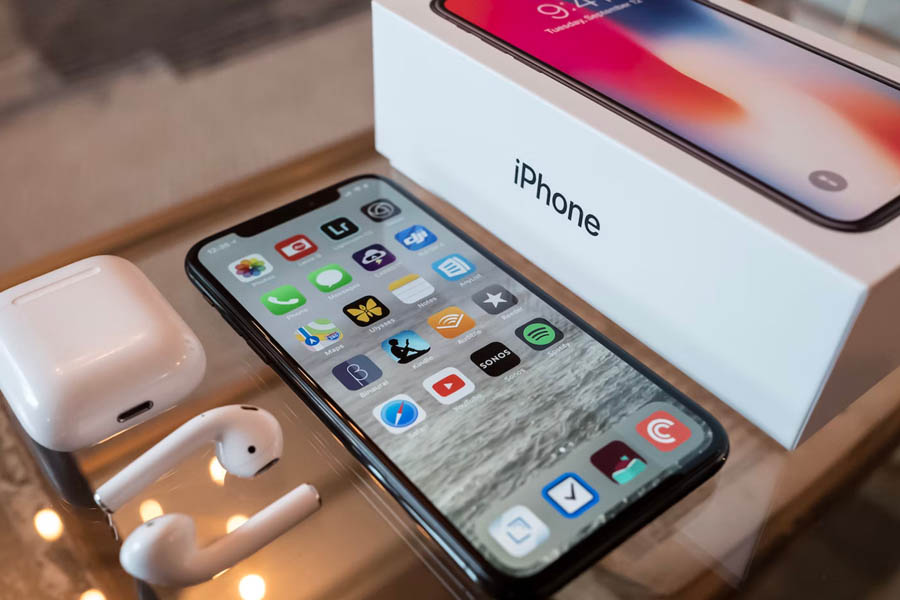
Over the years, Apple, led by CEO Tim Cook, has become a big player in the tech world. They've done this by creating a tightly connected system of devices and services, often referred to as a "walled garden." But now, there's a tricky situation for Apple. Their sales of actual gadgets, like iPhones and such, are not doing as well as before. So, to keep making money, Apple is putting a lot of emphasis on their services, like the App Store and subscriptions. While this might make them lots of money now, it's also bringing up some issues and could have problems in the future.
The Walled Garden:
Apple's "walled garden" is like a fancy club where everything works together smoothly – both the gadgets and the software. But here's the catch: if you want to leave this club and try something else, it's not easy. The rules and costs for switching are pretty strict, making it tough for Apple users to explore different options.
This strategy has made Apple a lot of money, but now some important people, like regulators and other companies, are not happy with it. Even some developers who create apps for Apple are starting to criticize this approach. The idea of everything working seamlessly might be great for Apple, but it's causing some headaches for people who want more freedom to choose.
Regulatory Challenges and Public Backlash:
As Apple sells fewer actual devices like iPhones and iPads, they're making more money from other things, like the services they offer. These services, which include the App Store and other subscriptions, have become super important for Apple's income. In fact, more than 25% of all the money Apple made in the last quarter of 2023 came from these services.
Now, here's where it gets a bit complicated. To make sure they keep earning money from these services, Apple has some rules in place. For example, they get a cut from every app sold in the App Store, and Google pays them to be the default search engine on Apple devices. While this is helping Apple make lots of money, it's also causing some disagreements with the people who make the rules (regulators) and other companies who don't like how Apple is handling things.
Hardware Sales Struggles:
Apple's hardware revenue, particularly from iPhones, has faced challenges, with lackluster sales prompting discounts in key markets like China. The release of the Vision Pro headset, promoted as the future of computing, faces obstacles as it adopts the same restrictive App Store policies. Developers, once eager to embrace Apple's innovations, are expressing concerns about limited access and control over the new device.
Developer Dissatisfaction:
Apple's policies, especially regarding App Store commissions, have fueled dissatisfaction among developers, who are now more vocal about their concerns. The high commission rates, coupled with selective exemptions for certain apps, are perceived as unfair. Even developers who have contributed significantly to Apple's ecosystem express worry about the company's direction.
Future Challenges and Regulatory Scrutiny:
Apple's steadfast defense of its walled garden may lead to more significant challenges in the future. Ongoing legal battles, such as the Epic Games case, could result in further scrutiny of Apple's compliance and practices. The EU and the U.S. Justice Department are actively pursuing potential antitrust complaints, signaling potential regulatory interventions that could impact Apple's growth trajectory.
While Apple's services revenue remains a stronghold, its walled garden strategy faces increasing opposition. As hardware sales struggle, the company must carefully navigate regulatory challenges and address developer dissatisfaction to secure its future. The delicate balance between maintaining a closed ecosystem and adapting to changing market dynamics will determine whether Apple's growth remains unstoppable or faces unprecedented challenges.
Message To The Readers:
Apple’s Walled Garden Dilemma: The article explains how Apple has created a closed ecosystem of devices and services, which makes it hard for users to switch to other options. This strategy has helped Apple make money, but also caused some problems.
Regulatory Challenges and Public Backlash: The article describes how Apple’s policies, such as taking a cut from every app sold in the App Store and making Google the default search engine, have angered regulators and other companies, who accuse Apple of being unfair and anti-competitive.
Hardware Sales Struggles: The article reports how Apple’s sales of actual gadgets, like iPhones and iPads, have declined in recent years, forcing Apple to rely more on its services revenue. It also mentions how Apple’s new product, the Vision Pro headset, faces obstacles from developers who are unhappy with Apple’s restrictions.
Future Challenges and Regulatory Scrutiny: The article concludes by saying that Apple’s walled garden strategy faces increasing opposition and legal battles, which could impact its growth and innovation. It suggests that Apple needs to balance between maintaining its closed ecosystem and adapting to changing market dynamics.
Thank you for reading: globalpostheadline.com | If you want to advertise your Company, Events, Movies, Products, Hotels, Travel Packages Let us know